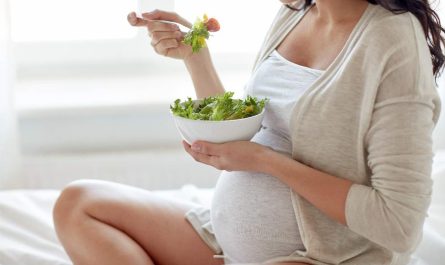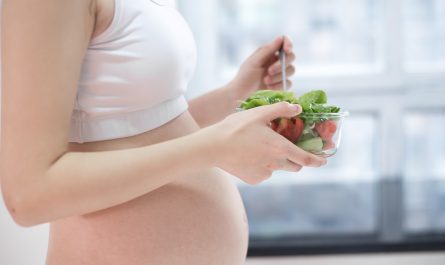A healthy diet during the first trimester is essential for both the mother and the baby. According to Mayo Clinic, proper nutrition can support fetal growth, prevent complications, and reduce common pregnancy symptoms. The right balance of vitamins, minerals, and proteins helps in the early stages of development. Since nausea and food aversions are common, choosing nutrient-dense foods is key. A well-planned diet can make the first trimester smoother and healthier.
Key Takeaways:
- A balanced diet supports fetal growth and reduces pregnancy discomforts.
- Key nutrients include folic acid, iron, and protein.
1. Importance of Folic Acid
Folic acid is one of the most important nutrients for early pregnancy. It plays a crucial role in preventing neural tube defects and ensuring the baby’s brain and spinal cord develop properly. Pregnant women should consume at least 400-600 mcg of folic acid daily through food and supplements. It is found in foods like leafy greens, citrus fruits, and fortified cereals. A deficiency in folic acid can lead to complications, so ensuring adequate intake is vital.
- Leafy greens like spinach and kale are natural sources of folic acid.
- Fortified foods such as cereals and bread help meet daily requirements.
2. Protein for Baby’s Growth
Protein is essential for the development of the baby’s muscles, tissues, and organs. It also supports the mother’s changing body and increasing blood volume. Consuming high-quality protein sources can help with energy levels and reduce pregnancy fatigue. Lean meats, eggs, dairy, and plant-based proteins like lentils and tofu should be included in the diet. The recommended daily intake of protein for pregnant women is around 70 grams.
- Dairy products like Greek yogurt and cheese provide both protein and calcium.
- Plant-based sources like chickpeas and quinoa are great for vegetarians.
3. Staying Hydrated
Proper hydration is often overlooked but is vital during pregnancy. Dehydration can lead to headaches, dizziness, and constipation, which are common in the first trimester. Drinking enough water also helps with amniotic fluid production and nutrient transport. Pregnant women should aim for at least 8-10 glasses of water daily to stay hydrated. Including hydrating foods like cucumbers, oranges, and watermelon can also help maintain fluid balance.
- Drinking herbal teas like ginger or peppermint can ease nausea.
- Coconut water is a great natural electrolyte source for hydration.
Final Thoughts
A well-balanced diet during the first trimester lays the foundation for a healthy pregnancy. Eating small, frequent meals can help manage nausea while ensuring proper nutrient intake. Focusing on folic acid, protein, and hydration can make a big difference in the baby’s development. If you’re unsure about your diet, consulting a nutritionist can provide personalized guidance.
For a customized pregnancy nutrition plan, contact DfabU by Dietician Deepak Khera at +91 8360257379 or visit dfabulousu.com.

